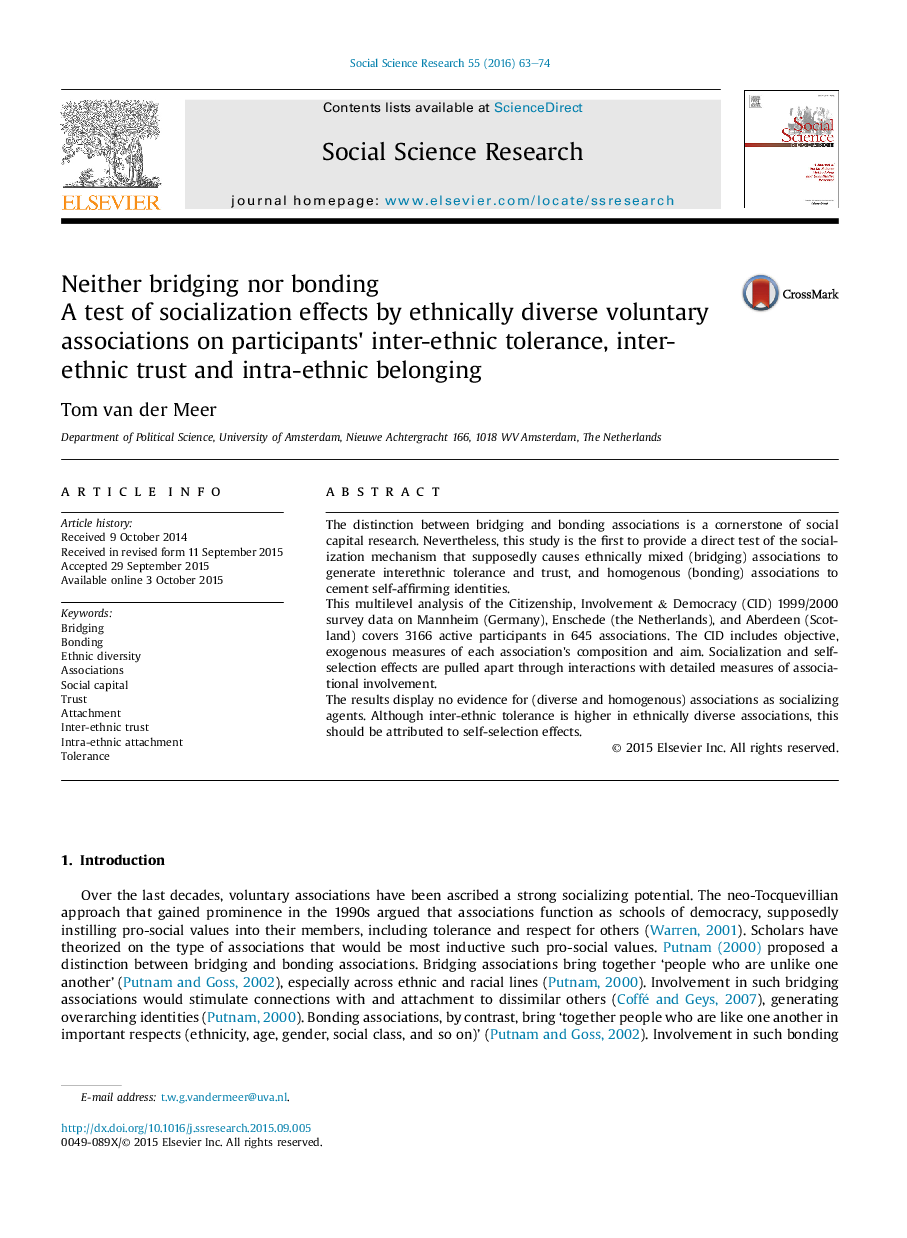| Article ID | Journal | Published Year | Pages | File Type |
|---|---|---|---|---|
| 955599 | Social Science Research | 2016 | 12 Pages |
•This paper directly tests the dominant theory on bridging and bonding associations.•The ethnic composition of each association is measured via key informants.•Socialization is argued to be conditional on members' extent and length of involvement.•Ethnically diverse (bridging) associations do not stimulate inter-ethnic trust or tolerance.•Ethnically homogenous (bonding) associations do not cement attachment to the own group.
The distinction between bridging and bonding associations is a cornerstone of social capital research. Nevertheless, this study is the first to provide a direct test of the socialization mechanism that supposedly causes ethnically mixed (bridging) associations to generate interethnic tolerance and trust, and homogenous (bonding) associations to cement self-affirming identities.This multilevel analysis of the Citizenship, Involvement & Democracy (CID) 1999/2000 survey data on Mannheim (Germany), Enschede (the Netherlands), and Aberdeen (Scotland) covers 3166 active participants in 645 associations. The CID includes objective, exogenous measures of each association's composition and aim. Socialization and self-selection effects are pulled apart through interactions with detailed measures of associational involvement.The results display no evidence for (diverse and homogenous) associations as socializing agents. Although inter-ethnic tolerance is higher in ethnically diverse associations, this should be attributed to self-selection effects.
